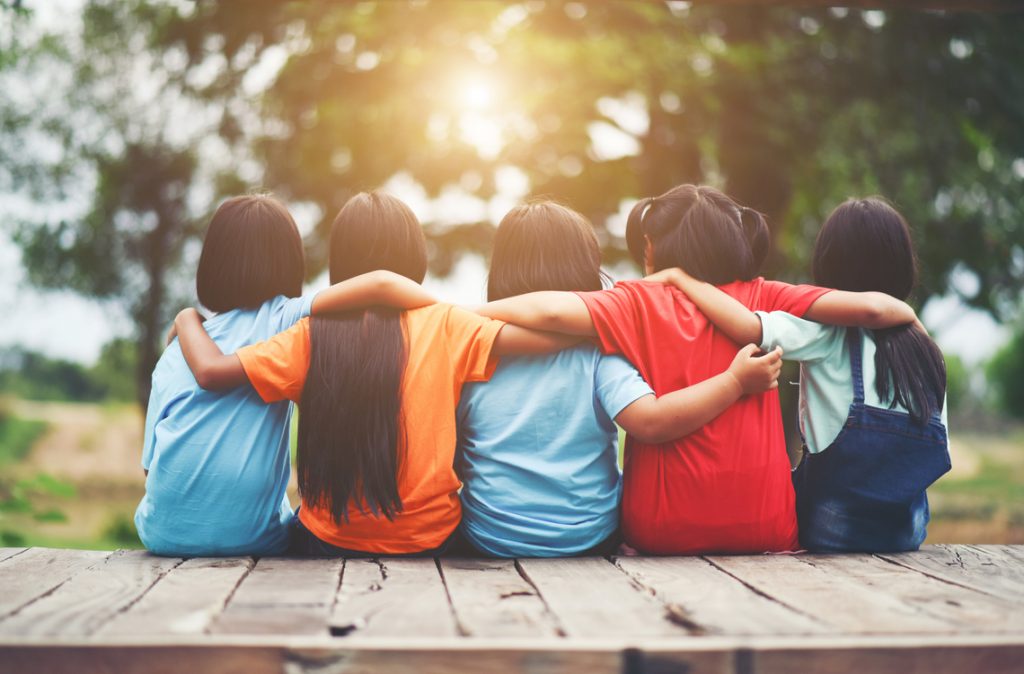Making friends doesn’t come naturally to everyone. While it may be second nature to some people, it may be awkward and intimidating for others. Especially for those who lean towards being an introvert.
Fortunately, making friends is a skill that can be learned, and we as mummies can offer a little help to get our child learn this skill.
Understanding The Child’s Specific Challenges In Making Friends
Firstly, we need a better understanding on where the challenge lies for the child. Making friends requires a suite of social skills. In order to most effectively help our child, we need to address the problem areas specifically.
Sit down and talk with your child. Ask questions so that you will learn where the issues lie. It could be that the child is simply shy and can’t overcome the anxiety of making an approach.
Or, the child may feel inadequate in starting or holding a conversation, not knowing what to say. It can also be that one is not good in reading and responding to others, thus making things awkward and uncomfortable.
A child may face one or two of these issues or all of it. Be patient to draw them out of your child, and then tackle each of them.
Understanding Some Unspoken Social Rules
There are many unspoken social rules that all of us go by. Whilst it may be obvious to adults, children need help in understanding them. Here are five basic social rules to abide by with friends:
-
Meet And Greet
Teach our child to meet and greet others in a positive and polite manner. A simple hello will suffice, and we need to be consistent with them. It’s part of common manners to acknowledge someone, and it shouldn’t be based upon our mood of the moment.
-
Taking Turn
Teach our child to learn to take turns in a conversation as a form of respect. Give others the chance to speak and also to speak up so that two way conversations can take place. Teach them to not interrupt others when they are having their turn.
-
Giving Our Attention
This is part of having respect for others, to be able to give our attention to them when spoken to or simply being with each other. Simple things like look at the other person when being spoken to plays an important role in fostering bonds.
-
Being Considerate
Teach our child to think about how others feel with regards to our words and actions before they go ahead to say or do something.
-
Being Cooperative
Everyone gets along when there is cooperation amongst all. Teach our child to give and take, and be a team member. Teach them to offer and ask for help, and to be open minded with others.
Three Other Basic Skills To Learn To Make Friends
Some of these soft skills are needed to boost our child’s confidence in making friends. It also boosts their self-esteem once they’ve mastered these basic skills and in a world where we don’t exist in isolation, they are vital.
Learning to Start And Hold Conversations
There are many skills that we need to learn in order to be a good conversationalist. Not that a child is required to be one, but at the very least we need our child to be able to start and hold conversations with their peers.
One good way for our child to learn this is to practise role plays with us to get the hang of it. Help them navigate this aspect and it will be a helpful kick-start for them to making friends.
Being Tactful With Words And Actions
Children can be very straight forward in what they say to others. Whilst being upfront and honest is good, they must also learn some tactfulness in handling conversations. Teach them to think about others before saying and doing something, to consider the feelings of others.
Respect Boundaries And Personal Space
Sometimes, unbeknown to us, we could make others feel uncomfortable if we encroach on their personal space. Some people like to keep some distance, so we need to teach our child to respect each person’s comfort zone. Teach them to keep a respectful physical distance and how to read someone’s body language.
The Day They Have BFFs
Seeing our children happy and having friends they can call their BFFs is definitely every parent’s wish. Making friends and learning social skills take time and effort. Helping our children navigate this area of life is one of the best things we can do for them. Growing up and having meaningful friendships along the way is important for children’s mental health.
There are more resources and evidence-based tips out there on this topic especially for children who struggle harder than others.
